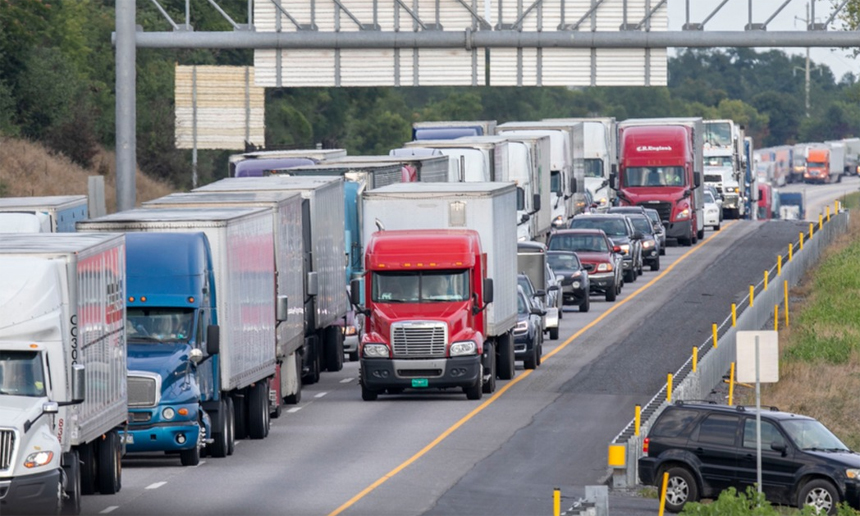Police in DeKalb, Alabama, recently fined two truck drivers for their inability to speak English. This raises questions beyond just language skills, as federal law has long required commercial truck drivers to be able to read and write in English.
This English language requirement dates back to the 1930s. In 2016, the Obama administration issued guidance to the Federal Motor Carrier Safety Administration (FMCSA) advising against dismissing drivers whose only violation was a lack of English proficiency. However, President Donald Trump reversed this guidance in 4/2025.
 |
Trucks and trailers lined up on a road in Cumberland County, North Carolina. Photo: *PennLive* |
According to WAFF, the fines resulted in the drivers being taken off the road. Local bilingual truck drivers expressed that they weren't surprised by the enforcement.
Huntsville truck driver Jose Reyes, a first-generation bilingual American, recounted having to translate for drivers involved in accidents.
"I think this is going to shock a lot of people," one person commented. "A driver has to operate a 40-ton truck, and that's extremely dangerous. They can't communicate, they can't read road signs—that's where the safety factor comes into play. Being able to remove these drivers from the road because they can't read or write basic English is very important."
The Commercial Vehicle Safety Alliance (CVSA) recommends that all drivers, when pulled over, should be able to communicate in English about their current job and understand all traffic signs.
Reyes added, "They have to use Google Translate to communicate with people, but it shouldn't be that way."
The problem may be more widespread than many realize. According to Straight Arrow News, the FMCSA recorded over 15,000 English-related violations in the past two years, averaging about 20 violations per day. A study on truck driver demographics indicates that just under 4% of drivers on the road have limited English proficiency.
Supporters of the policy emphasize safety as the top priority. However, critics warn that stricter enforcement could lead to discrimination.
Critics also argue that this regulation could exacerbate the driver shortage in an already strained industry.
My Anh











